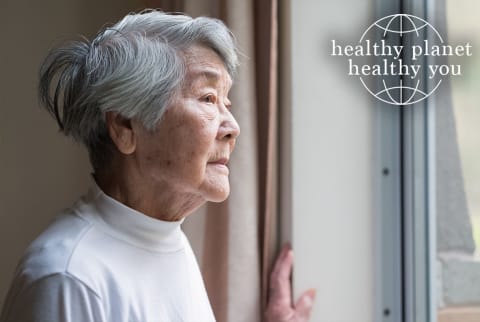Advertisement
Healthy Planet, Healthy You: 2025 Climate News To Know


Spending time in green space is an antidote to loneliness
For those struggling with feelings of loneliness and isolation, spending more time outside might help, according to a study published in the journal Environmental Research. This research tracked nearly 10,000 people in 18 countries—including people who lived alone—and found that those who paid more visits to parks and green spaces were more likely to report positive mental well-being and less likely to use anxiety and depression medication. Researchers theorize that green space can reduce loneliness by connecting people to the nonhuman world and encouraging community cohesion. (Read the research here1.)
It can slow down aging, too
Researchers suspect that getting outside more can slow down aging—but we don't have many long-term studies that have looked into this, especially in minority groups. But new data collected over 20 years across U.S. cities shows that those with greater exposure to green spaces have genes that tend to age slower.
And this was especially true for nonwhite communities and those who live in disadvantaged neighborhoods. It's yet another reason to visit your local park (or just patch of grass) daily; your cells will thank you. (Read the research here2.)
Why your environment impacts your cardiovascular risk factors
We've long known that genetics, diet, and exercise impact your risk of cardiovascular disease. But the environment seems to play a pretty major role too, and researchers out of Canada are now calling for a "A Cardio-Environmental Risk Model" that takes into account how access to green space and air pollution can shape one's cardiovascular health for better or worse.
This could change the way clinicians gauge patients' risk moving forward. (Read the research here.)
This hot spell isn't doing your mood any favors
As we come off the hottest week ever recorded, you may find that your temperament has taken a hit.
Research shows that besides posing physical threats, extreme heat can increase hospital visits for mental-health-related emergencies like anxiety attacks, substance use disorders, and self-harm.
This underlies the need for climate-informed health care in an increasingly warm world. (Read the research here3.)
Monthly focus: Speak out (and if you can, shell out) for clean air
This summer marks the first time many people in the U.S. are routinely checking their local AQI, as wildfires, smog, and ozone are causing air quality alerts from New York City to Chicago. As air pollution climbs to dangerous levels across the country, it reminds us how essential it is to protect the air we breathe.
To get involved in clean air advocacy, consider volunteering for an organization pushing for electrification, divesting your money from fossil fuels, or writing in to your local paper about what clean air means to you (here are some top tips about penning an op-ed from the American Lung Association).
Americans can consider reaching out to their state representatives voicing support for clean air policy, like the Public Health Air Quality Act, which would require the Environmental Protection Agency to improve air quality monitoring and alerts.
